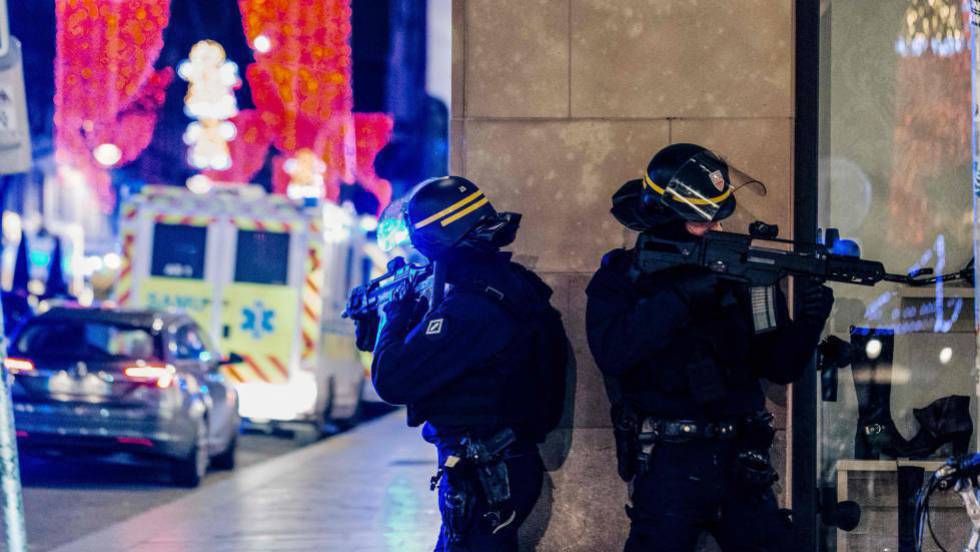The European Commission presented on 1 April ProtectEU: A European Internal Security Strategy to support Member States and strengthen the EU’s capacity to ensure the security of its citizens. The Strategy sets out an ambitious vision and roadmap for the coming years, with a stronger set of legal instruments, increased information exchange and closer cooperation.
In response to the changing security environment and in a changing geopolitical landscape, where hybrid threats from hostile foreign states and state-sponsored actors are on the rise, where powerful organised crime networks are proliferating and criminals and terrorists increasingly operate online, Europe must review its approach to internal security. Announced by President Von der Leyen in the Political Guidelines, the Strategy will improve the Union’s response to both new and known internal security threats.
The Strategy aims to promote a cultural change in internal security, with a society-wide approach, involving citizens, business, researchers and civil society. Security aspects will be integrated into the development of new initiatives, and a new European internal security governance framework will support the implementation of the Strategy.
As stated by Ursula von der Leyen, President of the European Commission: “Security is one of the fundamental prerequisites for an open and dynamic society and a prosperous economy. That is why today we are launching a major initiative to better tackle security threats, threats such as terrorism, organised crime, the rise of cybercrime and attacks against our critical infrastructures. We will strengthen Europol and equip law enforcement with up-to-date tools to fight crime. But also researchers, businesses and even citizens can contribute to greater security for all.
The European Strategy for Internal Security complements the Union’s Preparedness Strategy and the White Paper on European Defence. Together with the forthcoming European Shield for Democracy, they constitute a comprehensive framework for a safe, secure and resilient EU.
Objectives and key actions
A new European governance of internal security
The new threat landscape requires a change of mindset and an enhanced EU approach to internal security:
- identifying the security and preparedness implications of Commission initiatives from the outset and considering them throughout the negotiation process;
- regularly analyse internal security threats to support the work of the Security College and exchanges in the Council;
- report regularly to the European Parliament and the Council to follow up and support the implementation of key initiatives.
Anticipating security threats through new forms of intelligence sharing
Security depends on effective anticipation, so the EU must rely on high-quality situational awareness and threat analysis:
- producing regular overviews of the EU’s internal security threat landscape, based on various risk and threat assessments carried out in particular by EU agencies;
- improve information sharing by Member States in the framework of the Single Intelligence Analysis Capability;
- ensure a better exchange of information between Member States and EU agencies and bodies.
More effective tools for enforcement and stronger JHA agencies
Law enforcement agencies need the right tools to be effective. As 85% of criminal investigations are based on digital information, this includes lawful access to data:
- a new mandate for Europol to become a truly operational law enforcement agency to strengthen support to Member States;
- strengthen Frontex, Eurojust and ENISA and ensure close inter-agency cooperation;
- improve operational capabilities with a new critical communication system allowing cross-border communication between different authorities;
- a roadmap on lawful and effective access to data for law enforcement;
- a technology roadmap on encryption and an impact assessment with a view to updating EU data retention rules.
Strengthening resilience to hybrid threats
The EU needs to improve its resilience to hybrid threats by protecting critical infrastructure, strengthening cyber security and combating online threats:
- full implementation of the ECN and SRI 2 Directives by Member States;
- a new Cybersecurity Law and new measures to ensure the security of cloud services, telecommunications and the development of technological sovereignty;
- measures to limit reliance on single foreign suppliers and reduce the risk that our supply chains are sourced from high-risk suppliers, including a review of public procurement rules;
- strengthening the security of transport hubs, with an EU port strategy and new reporting systems to strengthen the security of aviation, transport and supply chains;
- an action plan against chemical, biological, radiological and nuclear (CBRN) threats.
Fighting serious and organised crime
Stricter rules are needed to fight organised crime networks. Law enforcement must be able to go after the money of these networks. Children must be better protected against organised crime:
- a new legal framework for organised crime, with stricter rules on investigation;
- a new strategy and action plan on drugs and drug trafficking;
- an action plan for the protection of children against crime;
- strengthening the “follow the money” approach, in particular by fully transposing the new rules on asset recovery and confiscation;
- new legislation against trafficking in firearms;
- new EU strategies on trafficking in human beings and victims’ rights.
Countering terrorism and violent extremism
As the level of terrorist threat in the EU remains high, the Union must be well-equipped to anticipate threats, prevent radicalisation, protect citizens and respond to attacks:
- a new EU Agenda to prevent and combat terrorism and violent extremism;
- a new set of tools to prevent radicalisation;
- a feasibility study on a new EU-wide system for tracking terrorist financing.
The EU as a strong global security actor
To counter the impact of global instability, the EU must actively defend its security interests beyond its borders, by fostering international security cooperation and:
- strengthening partnerships with key regions, such as Latin America and the Mediterranean region;
- conclude international agreements by Europol and Eurojust, also to set up joint operational teams with local police authorities;
- strengthen the exchange of information with trusted third countries;
- complete the review of the visa suspension mechanism and address security considerations in the next visa strategy.
Background
The Commission, together with Europol, has ensured that the actions of the Internal Security Strategy were underpinned by the data of the EU Serious and Organised Crime Threat Assessment (EU-SOCTA). The assessment, presented on 18 March, highlights the priorities for the fight against crime and the main threats facing the EU over the next four years.
More information: European Commission







Leave a Reply